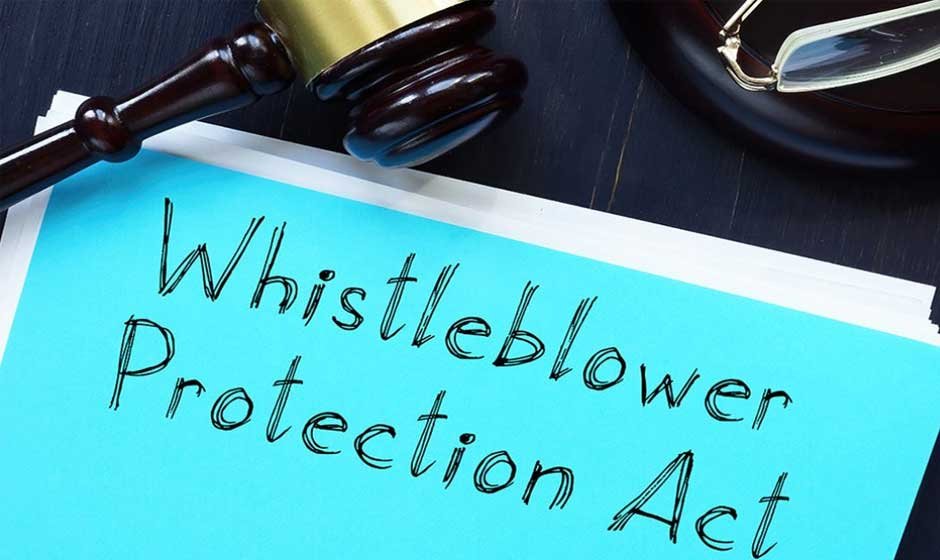If you work for an organization where an individual or networks of individuals are engaging in criminal or otherwise nefarious activities, you have your responsibility to come forward. That said, this prospect can be intimidating, especially if you fear retaliation.
How are you supposed to protect yourself if you’re planning on becoming a whistleblower?
The Importance of Whistleblowers
Whistleblowers are incredibly important in our society, giving us an opportunity to get access to information we might otherwise never see. Large governmental organizations, big businesses, and other entities often engage in illegal or unethical behaviors; if no one speaks up about it, it goes completely unchecked. A whistleblower can draw attention to problematic activities so they can be properly addressed and prosecuted.
Unfortunately, many people are discouraged from being whistleblowers because of the perceived risks. If your employer finds out that you’re secretly gathering evidence to demonstrate their wrongdoing, they may proactively fire you and deprive you of the opportunity to gather that evidence. They may even go a step further, retaliating by damaging your reputation or threatening legal action against you. If you have incriminating evidence against a powerful politician or governmental organization, you may even fear for your freedom or personal safety.
The good news is there are many people dedicated to helping whistleblowers stay safe, including lawyers who can help you better understand the law, protect your own rights, safeguard you against threats, and prepare you in other ways. What’s important is that you exercise caution to keep yourself safe and tap into these external resources as soon as possible to increase your protection.
Stay Quiet for as Long as Possible
There are many laws that can protect you and resources that can aid you in your whistleblowing efforts, but for those to be valuable, you need to avoid being prematurely caught. If the entity in power learns of your intent to blow the whistle, they can guard themselves and take action against you, not only compromising your safety but also precluding you from taking your whistleblowing action. Accordingly, you need to stay quiet for as long as possible. Be furtive and careful in your efforts. Do not voice your concerns or disapprovals. Avoid drawing unnecessary attention to yourself.
Talk to Your Loved Ones
Next, talk to your loved ones openly about what you’re considering. Being a whistleblower is a big responsibility and a potentially risky one, and your efforts may impact your family both directly and indirectly. Make sure you talk to them about the risks and value of your whistleblowing. Listen to their thoughts and concerns before you make any big decisions – and make sure they understand what could happen.
Contact an Attorney (and Trust Their Advice)
Early in the process, you should contact an attorney about your intentions (and any information you currently have). Your lawyer will help you understand your rights as a whistleblower and make recommendations for how you should proceed. They may also have resources and tools to recommend to you, aiding you in your efforts. Your lawyers are trained professionals in this space, so trust their advice.
Gather as Much Information as Possible (and Back It Up)
Your lawyers will likely advise you to gather as much information and evidence as possible. It’s reasonable to come forward with claims of conduct you’ve seen or heard, but it’s much more powerful to present hard, objective evidence. It’s important to remain furtive and anonymous in your efforts to the extent you can, but work diligently to gather information that will help you pursue justice.
Once you have that information, make an effort to back it up. Make multiple copies and store them in different formats; for example, you can create two hard, local copies stored in different places and back the information up on an encrypted cloud server. This way, if any copy is lost or compromised, you’ll have backups.
Remain Anonymous and Use Private Communication Channels
It’s generally a good idea to use secure, encrypted communication channels and remain anonymous in any communications related to your whistleblowing. This includes communications with your lawyers and with journalists. Your lawyer may have specific recommendations or channels available to you.
Prepare for Your Future
Finally, make a concentrated effort to prepare for your future. What will you do if you lose your job? What will you do if your employer does try to retaliate? Do you have savings to rely on? Do you have a career backup plan? Can you rely on your family or friends temporarily if you find yourself in a tough situation?
Being a whistleblower is a major responsibility and one that you need to take seriously, both for the pursuit of justice and for your own security. Plan ahead, be safe, and follow your lawyer’s advice if you want to emerge unscathed on the other side.





